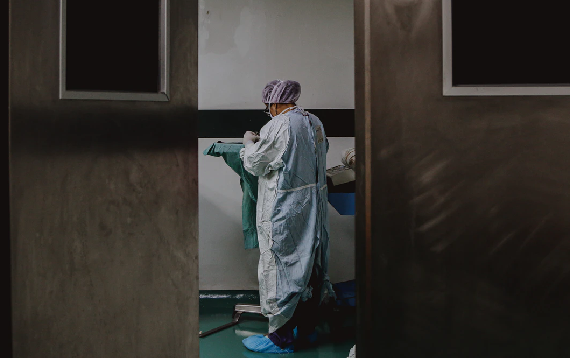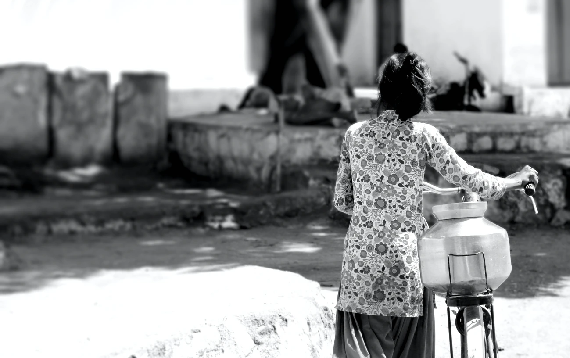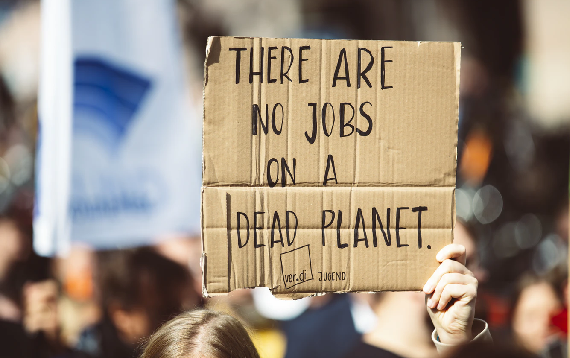On September 25, 2015, 193 countries signed a promising agreement that prompted many to dream of a better future. The United Nations’ 2030 Agenda for Sustainable Development included 17 goals – Sustainable Development Goals (SDGs) – to create a more just and sustainable planet. End hunger, climate action, gender equality or quality education are just some of the goals included in the list of 17 according to which the signatory countries’ agreed to align their efforts during the next 15 years.
Five years later, two discouraging reports – the UN Sustainable Development Goals Report and Goalkeepers 2020 report by the Bill & Melinda Gates Foundation – were recently published to warn about the impact that this fateful 2020 is having on the achievement of the SDGs. Has the global pandemic crushed all hopes of meeting the 2030 Agenda goals?
Damage to healthcare systems
SDG 3 – Ensure healthy lives and promote wellbeing for all at all ages – is, logically, one of the frontlines that is struggling the most under the pandemic. As of early October, according to the World Health Organization, there had already been 34 million cases worldwide, with more than 1 million deaths. To make matters worse, as frightening as these numbers may seem, the strain put on hospital systems across the world by the pandemic has further aggravated other issues that severely compromise people’s health.

The Goalkeepers report uses the term “mutually exacerbating catastrophes” to describe the knock on effect that a pandemic like the current one can trigger. On top of the disruption in the provision of essential health services – such as medical checkups and surgical procedures – caused by the case overload facilities are coping with, the fact that there are people who before the crisis would have received the treatment they are not receiving now because they are too afraid or just cannot visit their healthcare providers, in the words of the WHO, may have potentially fatal consequences.
Some of these consequences are already quantifiable. Global childhood immunization campaigns are have already been severely undermined. Between March and April, More than half of all countries for which there is data available reported moderate-to-severe disruptions or a total suspension of vaccination services. As a result, vaccination rates in 2020 have dropped to 1990s levels. “In other words, we’ve been set back about 25 years in about 25 weeks,” reads the report released by the Bill & Melinda Gates Foundation.
Although vaccination coverage provides a good yardstick to measure the state of global health systems, it by no means the only affected area. According to the UN, the erosion of public health systems could erase years of progress in reducing infant and maternal mortality rates, as well as unwanted pregnancy rates, as well as worsen care for people with all types of diseases.
The financial collapse and its collateral victims
“The widest-ranging catastrophe—the one that has spread to every country regardless of the actual spread of the disease—is economic,” reads the Goalkeepers report According to this paper, the financial losses from COVID-19 are already twice as great as those caused by the 2008 financial crisis and that the current one is the worst recession since the end of World War II.
The economic collapse is bound to have dire consequences for the achievement of virtually all SDGs, starting with SDG1 – End poverty in all its forms everywhere. The United Nations report warns that the pandemic will cause in 2020 what would be the first rise in global poverty since 1998 and that it will push 71 million people back into extreme poverty. This means that poverty will revert to 2017 levels. Furthermore, the consequences of the pandemic are more disastrous for populations that were already more vulnerable. According to the same report, “although the novel coronavirus affects every person and community, it does not do so equally. Instead, it has exposed and exacerbated existing inequalities and injustices.”

Education is one of the areas of activity where the uneven impact of COVID-19 is more evident. In its analysis of how the pandemic has affected SDG4 – Quality education – the United Nations report indicates that school closures worldwide may reverse years of progress in access to education. Although distance learning has emerged as a promising alternative to help ensure children education continuity, this technology is out of reach for most students in developing countries. The Goalkeepers report also underscores this lack access to distance learning technologies by many: “While we don’t have exact numbers of students accessing ed tech, for instance, less than one-third of the population across Africa has access to broadband.”
Another example are the consequences for SDG5, Achieve gender equality and empower all women and girls. Women devote much more time than men to perform unpaid chores, such as domestic work and caring for others. Surveys show that the amount of time that women spend daily on these types of tasks has increased during lockdowns. Furthermore, the aforementioned school closures potentially expose more girls to the risk of marrying before the age of 18 in areas such as sub-Saharan Africa. COVID-19 is disrupting other essential gender equality programs in some countries, including those targeting the end of female genital mutilation or that promote family planning, pivotal for certain aspects of female health, such as avoiding unwanted pregnancies or afterbirth support.
Climate action: still a priority in the midst of the crisis
Climate action forced itself onto the media agenda in 2019, and 2020 seemed poised to become a big year for the solidification of a global change that would make it possible to meet the Paris Agreement goals. However, the COVID-19 pandemic appears to have disrupted many of the actions underway.
Despite the drastic drop in activity during some months of 2020, at 6% or more, the reduction in greenhouse gas emissions this year is likely to fall short of the 7.6 percent yearly reduction target set forth in the Paris Agreement, as activity is resumed and restrictions are lifted.

And yet, the targets defined in international agreements in environmental matters and greenhouse gas emission reductions establish the bare minimums to ensure the future of humanity on the planet. In fact, many voices are advocating the need to plot sustainable programs to pull out of the crisis, for example, by doubling down on commitment to renewable energy. One step even further, the UN warns that the pandemic may end up being a preparatory drill in the face of what’s to come: “Our collective response to the pandemic can serve as a “warm-up” for our preparedness in preventing an even larger crisis – that is, global climate change, whose effects are already becoming all too familiar.”
Do we still have time to meet the SDGs?
The 2020 pandemic has dealt a huge blow to all international sustainability plans, and new issues have emerged that may further exacerbate the difficulties to meet sustainability-related goals. However, the United Nations report insists that the crisis reaffirms the need to keep working in the agreed direction: “Far from undermining the case for the SDGs, the root causes and uneven impacts of COVID-19 demonstrate precisely why we need the 2030 Agenda, the Paris Agreement on climate change and the Addis Ababa Action Agenda, and underscore the urgency of their implementation.”
Both the UN report and the Goalkeepers report agree that the key lies in collective action. Without global cooperation, steering the numbers back on track to achieve the SDG does not seem possible.
Comments on this publication